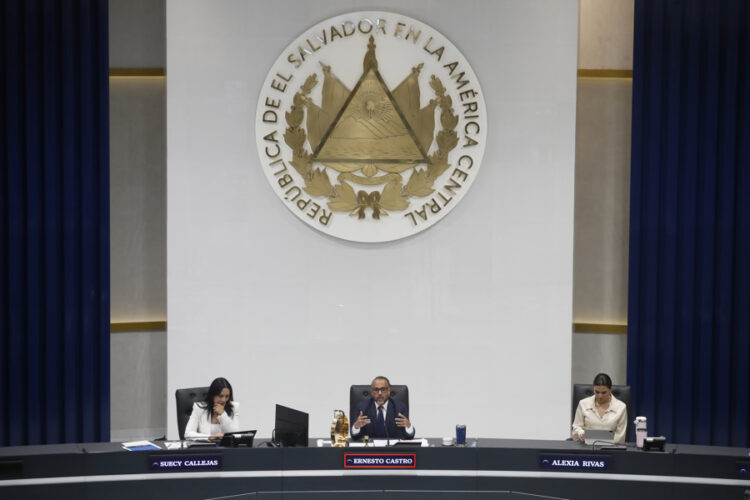
El Salvador’s Bukele Forever!
San Salvador, Aug 1 (EFE).-
El Salvador’s President Nayib Bukele has been given the green light to seek a third consecutive term after the country’s Legislative Assembly, dominated by his allies, passed a fast-tracked constitutional reform allowing indefinite presidential re-election, triggering alarm from human rights organizations.

The reform, approved on Thursday without prior debate or public consultation, amends the 1983 Constitution to remove term limits and extend the presidential mandate from five to six years.

Earlier this year, he stated he was “only authorized” to seek a second term, which he won in February 2024, despite international criticism and concerns about democratic backsliding.

Bukele has not publicly commented on whether he will seek re-election in 2030.
Critics warn of “democratic dismantling”
The Washington Office on Latin America (WOLA) called the move “a blatant manipulation of the Constitution” that “eliminates presidential term limits, granting Bukele unlimited re-election and six-year terms.”
“This is where years of gradual constitutional manipulation lead: the dismantling of democracy,” WOLA wrote on X.

Juanita Goebertus, Americas Director at Human Rights Watch (HRW), compared Bukele’s path to that of Venezuela’s government, warning that the constitutional changes threaten democratic institutions.
Local constitutional lawyer Manuel Zometa argued that the Constitution “has ceased to be fundamental law and has become just another regulation subject to the whims of a few.”
He warned that El Salvador is heading toward “electoral autocracy” and an outright authoritarian system.

Concerns over power consolidation
Opposition leaders and civil society groups say the reforms are designed to entrench Bukele’s power.
In addition to extending presidential terms, lawmakers also eliminated the second round of presidential elections.
Celia Medrano, a former vice-presidential candidate and human rights advocate, told EFE the move is “not surprising” and confirms long-standing fears about democratic erosion under Bukele.

“For those who still doubted the president’s intention to remain in power indefinitely, there is no more room for doubt,” she said.
Medrano also noted that the government has systematically persecuted critical journalists and activists while restricting civic space.
“A regime that criminalizes dissent and silences public opinion cannot be used to justify claims of popular support,” she added, citing recent polls in which six out of ten Salvadorans said they fear expressing criticism of the government.
The civil organization Acción Ciudadana condemned the reform, saying it does not empower the people but instead aims to “perpetuate the president in power.”

Bukele, 44, became the first democratically elected Salvadoran president to win re-election in 2024, a milestone not seen since the era of military dictatorships.
If he chooses to run and wins again in 2030, he would be the first in the nation’s history to serve three consecutive terms. EFE
sa/seo/mcd




